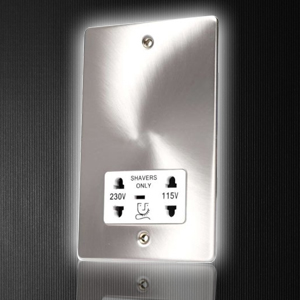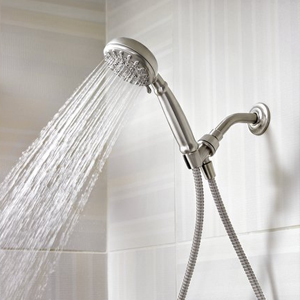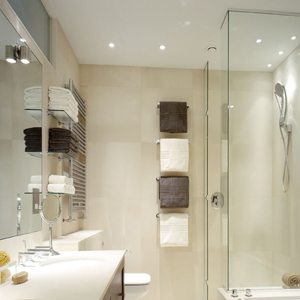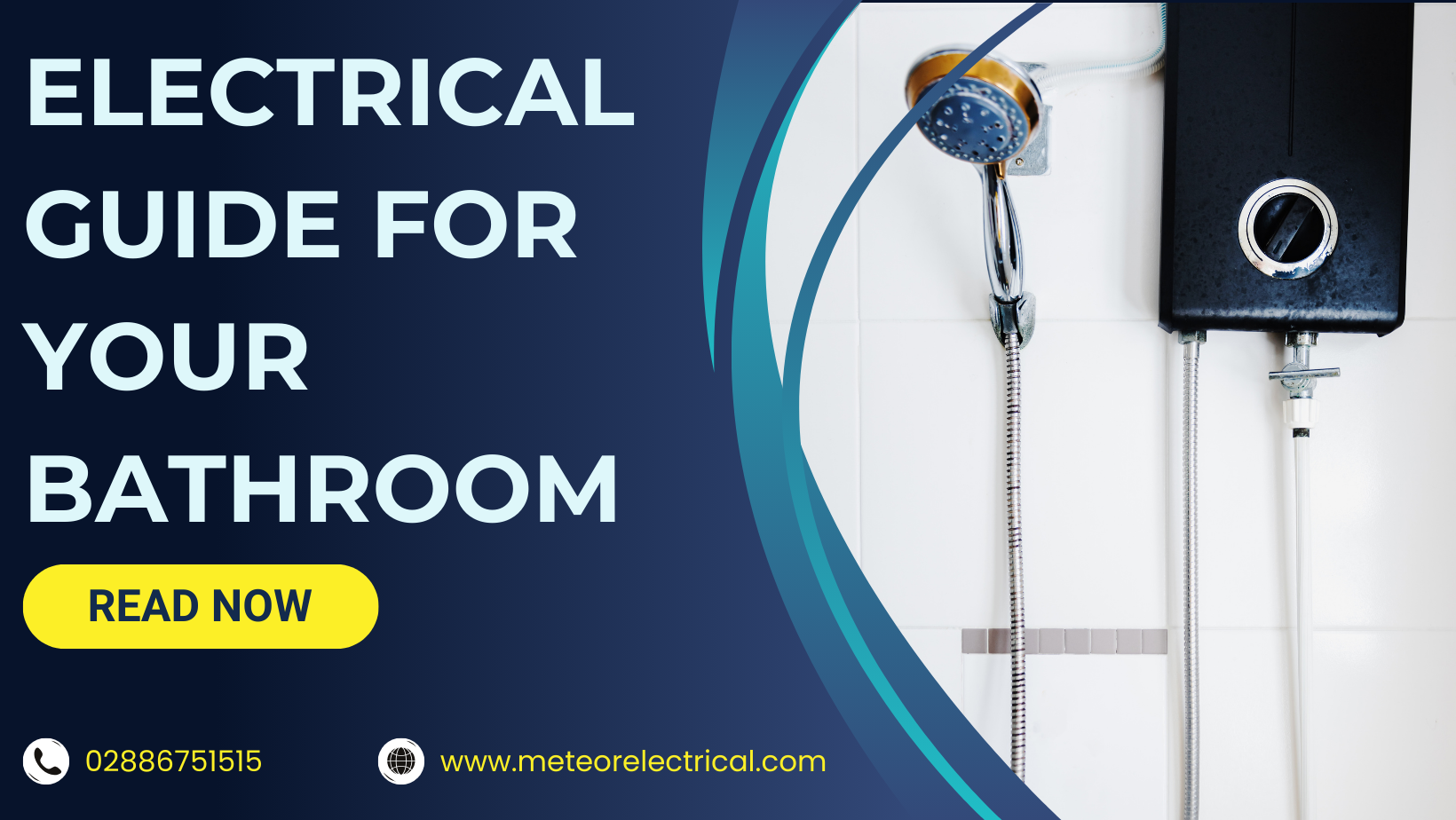Electrical Guide For Your Bathroom
For many people, a bathroom can be a sanctuary from a busy family life. By ensuring that all of your electrical work is carried out to standards and regulations will help preserve this title. Electricity and water are a dangerous mix, so great precautions must be taken when installing any electrical circuit or item. Meteor’s Guide will help you understand various electrical requirements within your bathroom.
Electrical Sockets

In order for sockets to be permitted within a bathroom or shower room, you must ensure that they are installed more than 3m from the edge of the bath or shower. Shaver sockets are an exception, they can be located slightly closer, however they must not be placed any closer than 600mm.
Electric Showers

Electric showers require their own electrical circuit, these tend to have the highest electrical demand out of your household appliances.
All circuits in a bathroom must be protected by a RCD (Residual Current Device). An RCD is designed to constantly monitor the electric current flowing through one or more circuits it is protecting. If it detects electricity flowing down an unintended path, for example, through a person who has touched a live part, the RCD will switch the circuit off very quickly, significantly reducing the risk of death or serious injury.
Building regulations state that a bathroom requires an adequate level of ventilation. An extractor fan is essential and will help cut down steam in the bathroom.
Electric showers are usually rated between 9 & 10KW and take a total of 40 amps when they are on. If there are two electric showers on at the same time the total load will be 80 amps which exceed the rating of the mains house fuse which could cause it to blow. If you install a shower priority unit in your home you can control which shower has prioirty and avoid this. The Priority shower uses a master and slave relationship between the showers. With this controller, the master shower (1) always works when it is switched ON. If the slave shower (2) is operating, and the master shower (1) is turned ON, the slave shower (2) will automatically be switched OFF, even if someone is using it.
Bathroom Heating

All electric heaters and water heaters in a bathroom must be fixed and permanently wired. Hot water central heating or underfloor heating is the safest way of heating a bathroom, but if you do have an electric room heater it must be out of the reach of a bath or shower.
Bathroom Lighting

Enclosed ceiling lights such as spotlights are preferable to pendant light fittings and all other wall lights must be out of reach, or enclosed to keep water out. If spotlights are being installed above a shower or bath then they must be enclosed in shower rated downlight. Learn more about IP ratings here.
Lights ideally should be controlled by a ceiling mounted pull-cord switch, where the cord is made of insulating material.

